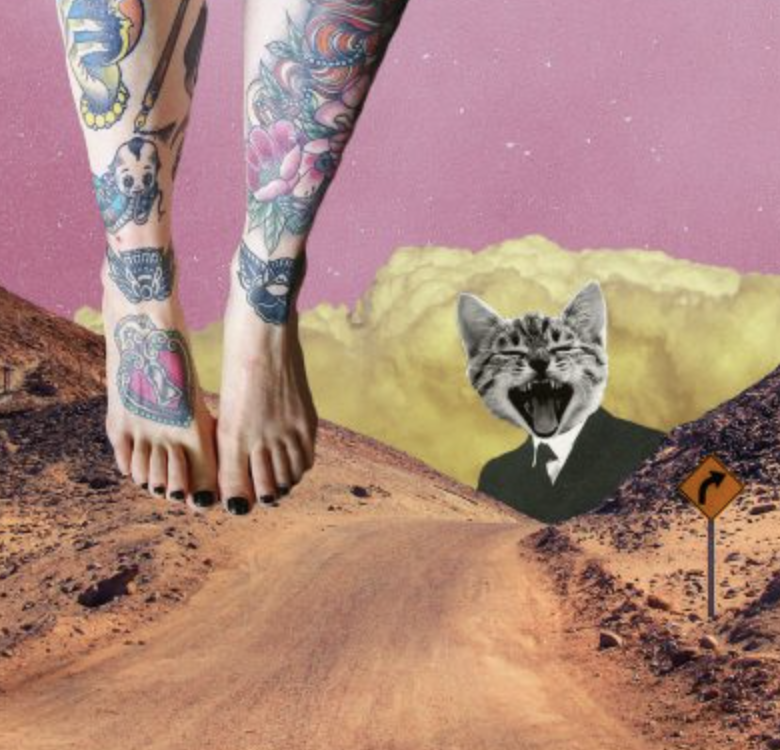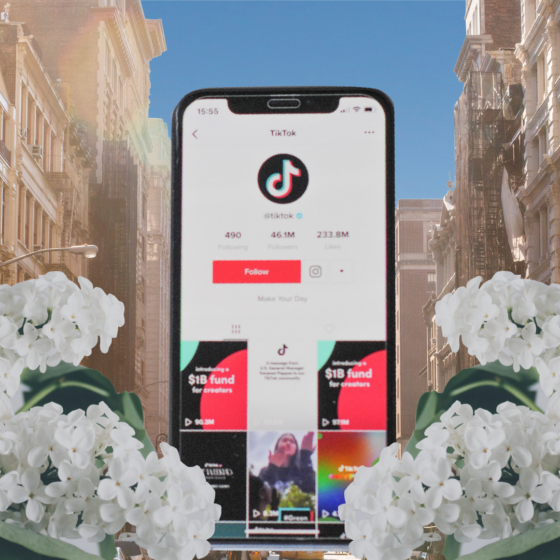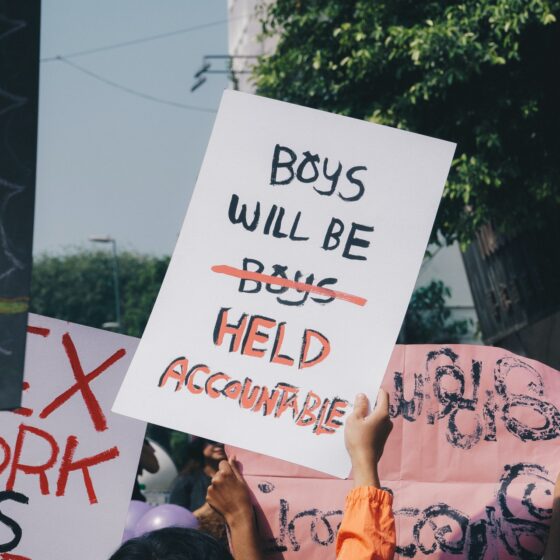“Tattttttoooooos,” I can see the guy mouthing it at me, but I can’t hear him, I have my earphones in. His eyes linger too long on my legs, which makes me feel exposed, vulnerable. I am wearing shorts, which show the tattoos that cover most of the skin from my ankles up to the top of my thighs.
It’s hot, but I shouldn’t need to justify my outfit choices.
I am minding my own business. I am simply going for my daily walk, trying to keep my two-metre distance from passers-by. But it isn’t easy manoeuvring around the streets in London near my house, respecting the social distance near impossible on some sections of the path beside busy roads you can’t step onto.
He motions at me to take my earphones out. I do, I give him the benefit of the doubt – even though I know what’s coming…
“Giiiiirl, nice tatts,” he leers in that suggestive tone that can’t be brushed off as a harmless compliment.
He steps towards me. I cross to the other side of the road, as I put my earphones firmly back in my ears. I don’t want to know what else he is going to say. I quicken my pace to get away. I don’t want him anywhere near me.
You’d think people might be more respectful now. But it seems a global health emergency doesn’t stop the catcalls. Well, more specifically, the tatcalls. A clever play on catcalling, Melissa A. Fabello started the #tatcalls hashtag in 2015, when she wrote about what it’s like to simply exist as a tattooed woman in public for Everyday Feminism – she was tatcalled 10 times in the space of 40 minutes on a walk.

And I feel her pain, her annoyance. I mean, what is it about heavily tattooed flesh on a woman that provokes so much attention?
Last year, GQ published an article asking its readers if they were guilty of tatcalling without knowing it. “Even though it may feel like a well-intended compliment is totally benign, remember it isn’t always so simple. You’re still talking to a woman you don’t know about her body,” it concluded.
And I thought lockdown might stop the comments, but these are a handful from my walks over the past few weeks:
“Alright darling, did those hurt?”
(Urm, well a needle was dragged in and out of my skin for hours on end, then when it was healing the raw skin as an open wound. You fancy having a go?)
“You like the pain then, do ya?”
(None. Of. Your. Business.)
“How far does that go down?”
(Well, actually, the design on my back goes all the way to my bum, but you are never, ever, going to see it.)
Of course, I didn’t retort with any of those comments, I said them angrily in my mind, gritting my teeth.
And I am not the only one being tatcalled during lockdown. “I was going for a walk near my house the other day, and a drunk man outside a shop shouts, ‘love your tatts sexy!’ So I glared at him and said nothing and he goes, ‘look at what this coronavirus is doing to everyone!’ As if I’d usually appreciate his gross comments,” Keely, who is a makeup artist and lives in London, tells me.
“I had an experience in a shop where a man followed me around the store, out and down the street,” London-based piercer, Lucy, tells me. “He finally caught up with me waiting to cross a road and made some crude comments. He got far too close, I reminded him politely that he needs to stay two metres away from me – really I wanted to say at least two miles. He then asked me for my phone number, do I want to go for a drink, all the time staring me up and down. He never even asked my name. It made me feel like an object for his visual pleasure.”
“I was in the supermarket, a guy – who was a lot older than me – came up to me and said he liked my chest piece, I said thanks and was just trying to get on with my shopping but he wouldn’t leave me alone,” says tattoo artist Dolly, who lives in Brighton. “He asked if I was covered and I said ‘yes thanks’ and tried to walk off. He just kept following me, then asked if I would pull my top down so he could see more of my chest piece. I said absolutely not, and he got defensive and said, ‘I wouldn’t cover myself in tattoos unless I wanted men to see them, so I dunno why you’re getting so upset’ – it’s just testament to this notion that men think women get tattooed to get attention from them, god forbid I should do it for myself and nobody else.”
Because here’s the thing. Women with tattoos have been historically painted as sluts, tramps and whores. I have heard women with tattoos be called chavvy, distasteful and loose. Is that why some men think our bodies exist for their gaze? That perhaps because we’ve spent hours with a needle scraping in and out of our skin that we’ve asked for it? That we want their attention.
One study, by French psychologist Nicolas Guéguen, found that while men see tattooed women as “less attractive”, they also see them as more “sexually promiscuous”. The study also found that men thought their chances of having sex with a female were significantly greater when they were displaying a tattoo than when they were not.
My tattoos aren’t an invitation to stare or to be sleazy and they definitely do not mean I will sleep with you.
I am not saying you can’t talk to me about them, but we all know there’s a fine line between a compliment and creepy. It’s clear to me when a comment is genuine curiosity, and I will engage with someone when that is the case. “It’s okay to expect a level of wonderment from people who are not in our ‘scene’ – although everyone has the right to look however they want. Asking appropriate questions is fine, I have no problem talking about my tattoos, just be polite. Respect us as human beings,” agrees Lucy.
Rosalie, editor of tattoo magazine Things & Ink, like I do, often edits how she dresses to avoid attention. “You have to psych yourself up to go out and enjoy the day, to feel the sun on your tattooed, and sun creamed skin. Sometimes I have to decide if I’m feeling strong enough to deal with the attention, comments and stares a potential outfit could bring. That’s not okay, no one should feel like they can’t wear something because of how people may react to them.”
The one thing that seems to have disappeared during lockdown – so far – is the unsolicited touching. In previous years, I have had my arm grabbed and my top pulled down so a guy “can get a better look” at my back piece. “Just because I have tattoos does not mean you can touch me,” agrees Rosalie. “They don’t make my skin feel different. And even if they did, stop touching people without asking.”
You should never, ever touch someone without their permission. Especially now – it isn’t just inappropriate and an invasion of someone’s bodily autonomy, it’s dangerous and a risk to my health.
Obviously street harassment happens to most women, 64 per cent of women have experienced sexual harassment in public according to a YouGov survey. (The Government has pledged to end street harassment for women and girls by 2030.)
And, I am not claiming that as a tattooed woman I am any more oppressed than anyone else, nor am I saying I am a victim – they are my choice, but perhaps that is the point? It really just illustrates that a women’s body is still considered public property. That if she alters her skin, marks it, it as an affront to what it means to be a woman. Feminine, pure, unmarked, unrealistic beauty ideals that I probably never fit into anyway. I’ve been told I will regret my tattoos, that I would look much better without them, that I’ve ruined my body. It makes me sad that something that makes me feel so much more comfortable in my own skin sometimes provokes such a negative reaction. I would never judge someone in that way entirely based on their appearance – their body, their choice.
But really the point is that there are numerous reasons women get tattoos – to feel in control of their bodies, to get over trauma, to mark a moment, or simply because they like the way they look. I don’t do it for attention, which I might add has become a tired stereotype. I would also argue that most women don’t do it to get shouted at while they are walking down the street. Tattoos aren’t an indictor of someone’s morals. Neither do I wear make-up, a short skirt or belly top for the eyes of random men. Sexual harassment is never okay or justified because of how someone chooses to present themselves.
My body doesn’t belong to you. My tattoos are mine. They are not, and never will be, an invitation to judge or leer at me. So please stop. I want to feel safe when I walk down the street, especially now, when the world is on fire around us.









